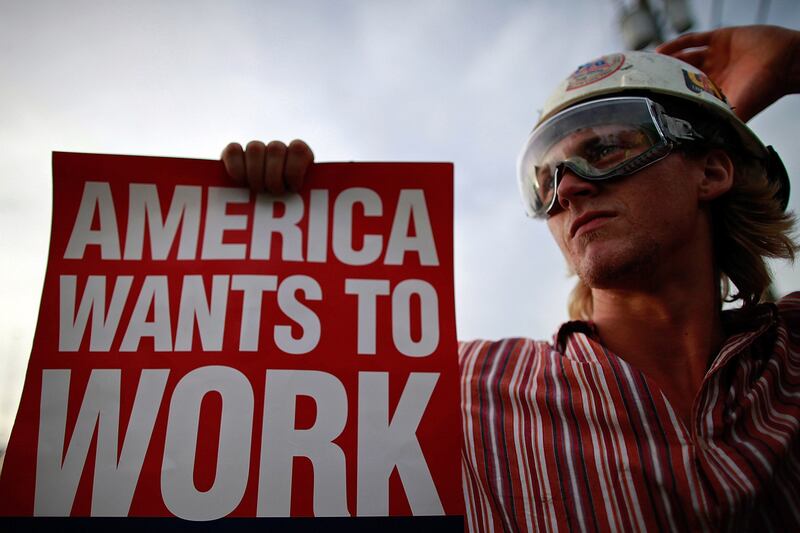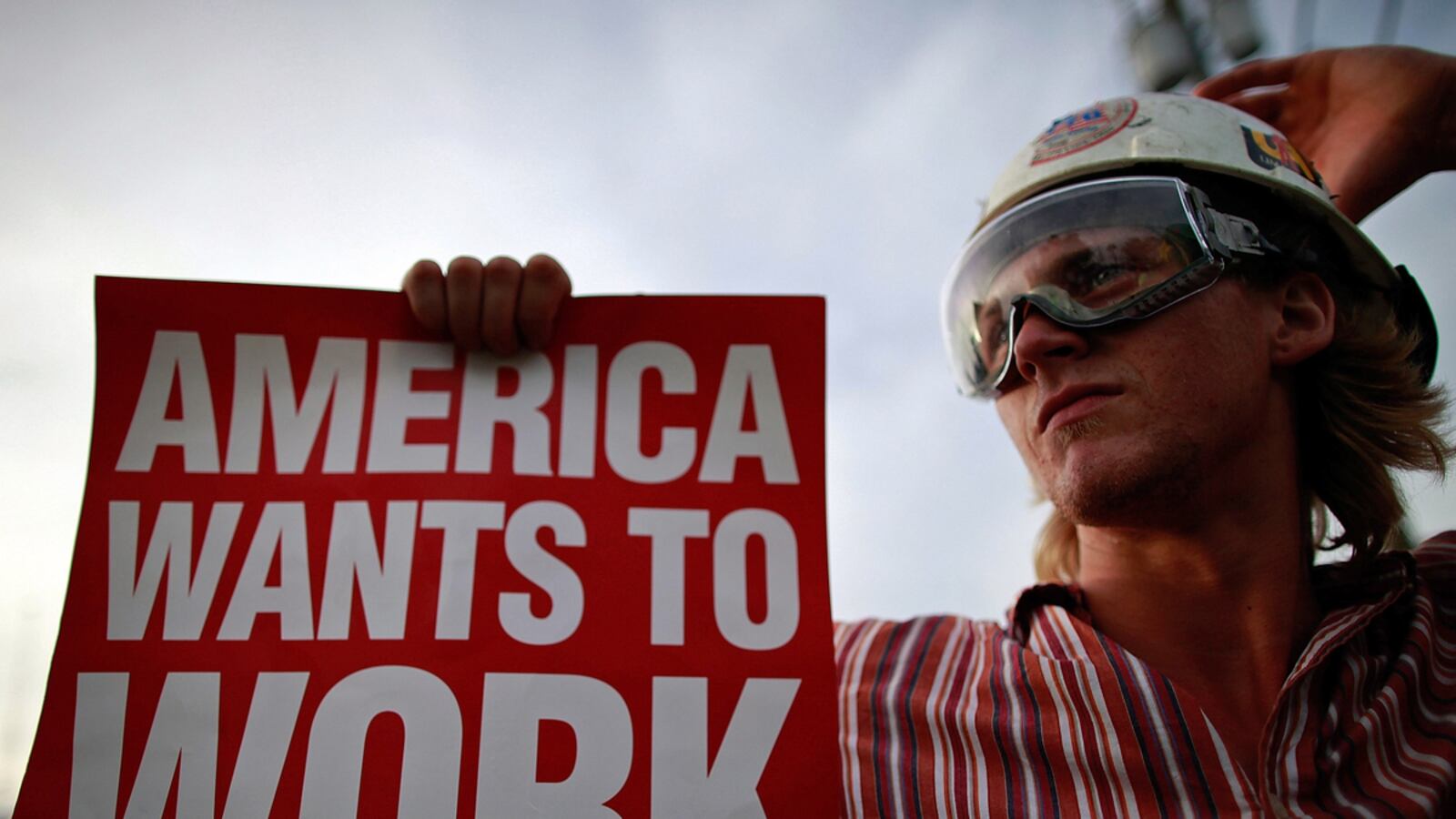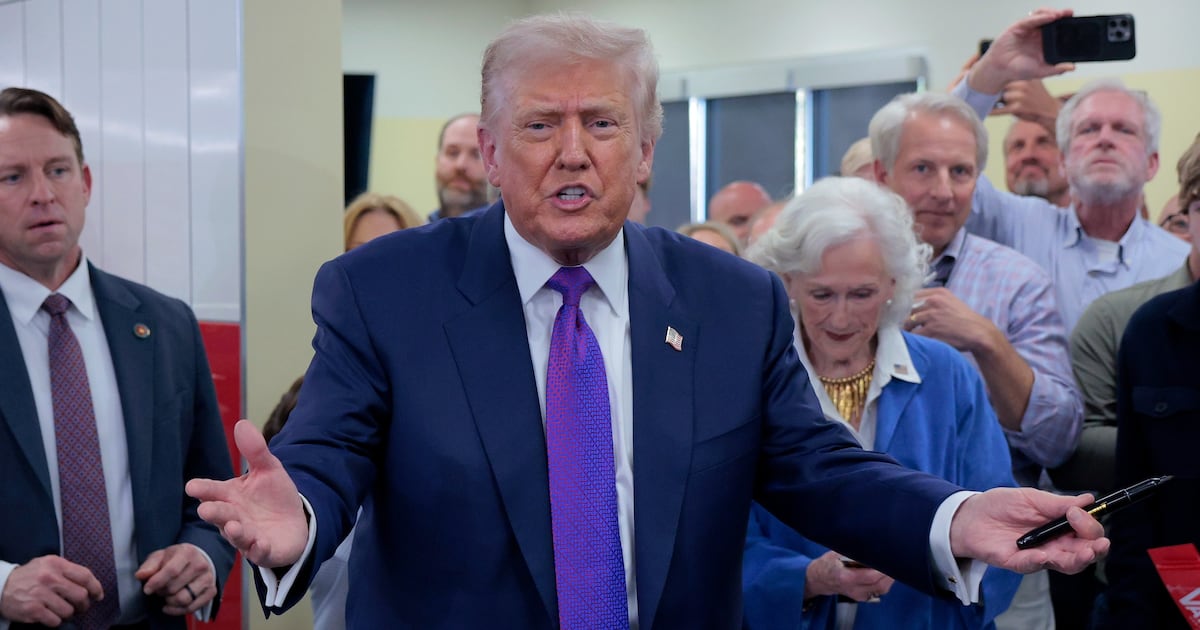
More than 200 teachers, pipe fitters, and other public and private union workers marched in Tampa’s muggy heat on Wednesday night, chanting against a Republican platform that union leaders say may be the death knell of organized labor.
The American Federation of Labor and Congress of Industrial Organizations (AFL-CIO)-sponsored “Welcome to Mitt Romney’s America” parade was the largest march on day three of the Republican National Convention and followed the official parade route through a desolate part of downtown Tampa to a designated event zone that is far from the eyes of delegates at the convention forum. The labor demonstrator’s audience was primarily hundreds of law enforcement officers on bicycles, horses, rooftops, and the overpass of a closed expressway.
The lack of onlookers and heat didn’t deter the hundreds of marchers from putting on a lively display. Workers carried “Save America’s Postal Service” signs, wore shirts with slogans such as “I make a difference every day,” and stopped briefly for skits to demonstrate what they believe America will look like if Romney is elected. In one performance, a Romney caricature dodged a tax man and in another, he passed out Romney dollars, a reference to the candidate’s support of a minimum wage as opposed to what unions consider a livable wage.
The demonstrators, primarily from Florida, put faces to the organized labor movement which has come under increasing scrutiny in primarily Republican-led states during the past two years. Wisconsin, New Jersey, and Florida have each enacted measures to reduce the power and benefits of public-workers unions.
“They are killing the middle class,” said protester Kat Petty, an Ocala, Fla. member of the Communications Workers of America union. “We are becoming a third-world country.”
CWA Union Marcher Steve Wisniewoki of Orlando works for the same company as Petty, AT&T CenturyLink. He says his employer was taken over in the past year by an investment firm similar to Bain Capital, a company that Romney once headed. Since the takeover, the investment firm has ceased pension contributions and eliminated pensions entirely for new hires.
“They are trying to take away our overtime,” said Wisniewoki, who is also the local union president.
National union leaders point out that if enacted, the Republican platform released on Tuesday would be devastating to organized labor. “A Romney presidency would be a mirror of what he did at Bain for workers - layoffs and outsourcing,” said Eddie Vale, the former AFL-CIO spokesman who now speaks for its Super PAC, the Worker’s Voice.
Meanwhile, GOP members paint their platform as beneficial to all workers and the economy. “It’s an indictment, it’s a blueprint, and it’s a declaration of values,” Virginia Governor and Platform Committee Chair Bob McDonnell told delegates.
The RNC platform endorses a national Right to Work law saying it would serve “to promote worker freedom and to promote greater economic liberty.” Romney has publicly supported a national Right to Work law.
A growing number of states adopted right-to-work laws in recent years. Twenty-three states, including Florida, now have them.
In right-to-work states, employers and unions cannot force employees on union jobs to pay union dues even though they benefit from a union’s negotiations and contract enforcement. In effect, the measures have weakened unions. In some states employers have disregarded union representation altogether.
The Republican platform also seeks to dismantle the Davis-Bacon Act, which has been attacked by conservatives in recent years. The act passed during the Great Depression enables the Department of Labor to set pay standards for government contractors and basically ensures that employers can’t skimp on employee pay while they pocket a large portion of job payment.
The Republican platform calls for a variety of other changes that affect laborers including weakening the Occupational Safety and Health Administration, which monitors and enforces safety on job sites. The platform endorses the possible privatization of the U.S. Postal Service and support more primary school vouchers that allow students to go to private schools, which are predominately non-union.
Union leaders say the GOP platform is the most unfriendly labor one in history and makes the Presidential election especially high-stakes. However, it and state measures have galvanized workers to fight against Romney’s election.
“The attacks on working families all across the country has fired people up about the threat they are under and has them ready to oppose Romney bringing these attacks to the national level,” Vale said.
Members of AFL-CIO and other unions have launched a massive grassroots campaign to defeat Romney. Thousands of union workers are canvassing door-to-door, calling voters and campaigning against the candidate online. The Worker’s Voice PAC has also poured money into anti-Romney ads, including mailers and online ads that targeted him during the Olympics.
In Florida there are indications that Republican Gov. Rick Scott and state legislature’s actions against unions may hurt Romney. Under Scott’s leadership the legislature attempted to force public employees to contribute to their pension plan and also prohibited the state’s collection of union dues through worker’s paychecks, a service unions pay for. The measures have been struck down in court but in part continue to be legitimated.
The biggest bruise to Romney among Florida union members may come from the fallout of Gov. Scott and the legislature’s recent measures affecting public school teachers. The state dismantled educators tenure program and now bases teachers’ pay in part on their student’s performance of Florida’s standardized test.
Teachers wearing “Pink Slip Rick” t-shirts made up a significant portion of the demonstrators at Wednesday labor rally and have colored anti-Romney marches throughout the week.






